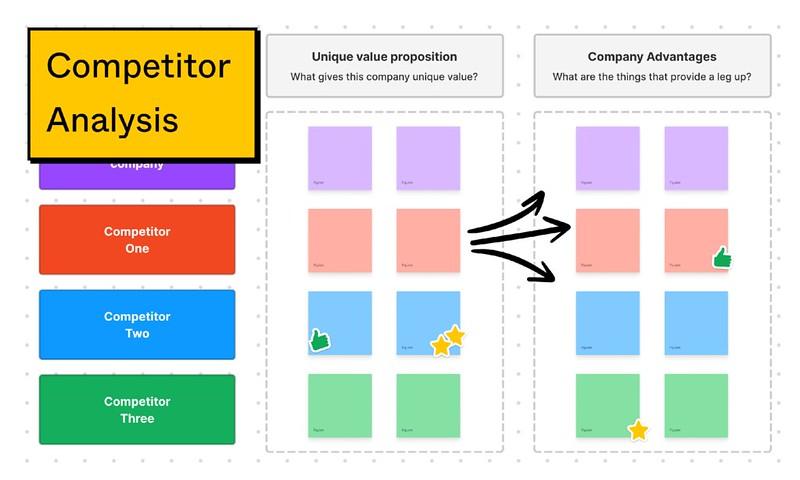How to become an SEO specialist? Why should you work in this field? You will have the answers after reading this article!
As search engines evolve, more and more people want to get into SEO because it is a vital part of content marketing.
You’ll have the knowledge and skills you need to become an SEO specialist by going through the nine steps in my guide.
Who Is A SEO Specialist?
An SEO specialist is a skilled pro responsible for optimizing websites and online content to improve their visibility and ranking on SERPs. They help businesses enhance their online presence and attract organic traffic.
These experts often work in teams with web developers, content creators, and digital marketing teams to execute SEO strategies.
They must stay up-to-date with the industry trends and search engine algorithms to adapt and refine their approaches.

Job Duties
As an SEO specialist, I help websites get noticed by more people on search engines, especially Google. Here’s what I do:
- Keyword research: I find out what words and phrases people type into search engines when looking for things online.
- On-page optimization: I optimize various on-page elements, including meta descriptions, titles, headings, and content. I ensure they align with chosen keywords and follow SEO best practices.
- Technical SEO: I check that the website works well, loads quickly, and looks good on mobile phones because search engines prioritize websites that work smoothly.
- Content: I create/improve the website’s articles and pages to make them helpful and interesting for visitors.
- Link building (off-page task): I connect the website to other reputable websites to enhance a website’s authority and credibility because it has a trustworthy source of information.
- Tracking: I use tools to see how the website is doing and make changes to help it perform better.
- Keeping up with changes: I stay updated with any new rules that search engines make and adjust the website accordingly.
How To Become An SEO Specialist
To become an SEO specialist, you need in-depth SEO knowledge and techniques to optimize content and websites. To get these, go through each step in my following guide!
1. Learn About Search Engines
To work in the SEO industry, you should start by learning how search engines do their job. Here’s what you need to know:
- Crawling and indexing: Search engines use automated bots, like web crawlers, to explore and scan websites all over the internet. These bots follow links from one page to another, creating a list of web pages.
- Algorithms: Think of algorithms as rules that search engines follow to know which web pages are the most relevant when someone searches for something.
- Keywords: Keywords are the words or phrases people type into search engines when looking for something. Search engines use these keywords to find and display relevant web pages.
- Ranking factors: User intent, good content, backlinks, domain age, URL, etc.
To learn these basics, I recommend exploring beginner-friendly SEO guides and books that break down complex topics into simpler terms.

2. Understand SEO Concepts and Strategies
SEO concepts and strategies are principles and techniques to improve a website’s visibility and ranking on search engines.
To understand them, you need to learn the basics of on-page/off-page SEO, technical SEO, content strategy, UX, and other related things.
Once you have these basics, you’ll know how to use them to help websites drive organic (non-paid) traffic and improve their online presence.
3. Develop Core Skills

After knowing the basic concepts and strategies, it’s time to develop the skills to put that knowledge into practice.
- Keyword research: Start by learning how to find keywords. Know which keywords are short and general (like “shoes”) and which are longer and specific (like “running shoes for women”).
- On-page optimization: Focus on optimizing individual web pages. Use keywords in titles, headings, and content naturally. Learn how to create URLs that make sense and help search engines understand your content.
- Link building: Study different ways to get links (both internal and external) to your site. This way, you can make your site look more trustworthy to search engines.
- Content marketing: You need to learn how to create content that people find interesting and valuable. Try various types like blog posts, videos, or infographics. You can share them on social media to get more visitors.
- Content audit: Regularly check and improve your existing content. Look for content that’s not performing well and update or remove it.
- Coding basics: While not mandatory, some basic knowledge of HTML and CSS (web page code) can help make on-page SEO changes directly in the code.
Keep testing and adjusting your strategies to improve your skills as an SEO specialist.

4. Learn To Use SEO Tools
Tools are indispensable if you want to do well as an SEO specialist. The tools you need to master include:
- Google Analytics
- Google Search Console
- Keyword research tools
- SEO audit tools
- Backlink analysis tools
- Content optimization tools
First, I recommend starting with Google Analytics, a free tool. You need to learn to set it up and understand vital metrics (how long people stay on your site or which pages they like).
Then, you can explore Google Search Console. It’s also free and helps you see how your site is doing in Google search. Focus on how to use it to find problems on your site and see which keywords bring people to your site.
Regarding keyword research tools, try Google Keyword Planner, SEMrush, or Ahrefs to find the right words people use when searching online.
SEO audit tools are also essential to check your website’s health. You can use Moz, Screaming Frog, or Sitebulb to find and fix issues like broken links or slow-loading pages.
Don’t forget to learn how to use backlink analysis tools, for example, Moz’s Link Explorer or Ahrefs, to see who’s linking to your site and if those links are good.
For content optimization tools, I often use Yoast SEO and SurferSEO to make my content better for search engines. They also give me tips on using the right words and making your content easy to read.

5. Learn About Competitor Analysis
Competitor analysis is vital in SEO because it helps you find ways to improve your website and compete better in the online world. Here’s what you need to analyze about your competitors:
- Keywords: See which words and phrases your competitors are trying to rank for in search engines. This way, you will know what topics bring visitors to their sites.
- Links: Look at the websites that link to your competitors to reveal where they get their website authority and how they build connections.
- Content: Examine the kind of content your competitors create. Notice what types of blog posts, videos, or other content they use and which are popular.
- On-page SEO: See how your competitors optimize their web pages and how they use keywords in titles, descriptions, and content.
- Traffic: See if most of their visitors come from search engines, social media, or other websites.
- Strengths and weaknesses: Based on what you’ve learned, figure out what your competitors are good at and where they might fall short online.
By studying your competitors, you can adapt your SEO strategy to stay ahead in the digital game.

6. Join An SEO Course (Optional)
Joining an SEO course is not required because you can completely learn this knowledge yourself. Yet, these courses provide a systematic and organized way to learn. You’ll cover all the essential topics in a logical sequence.
Typically, completing an SEO course results in a certification, which can enhance your credibility and job prospects. Here are where you can find an SEO course:
- Coursera
- Udemy
- LinkedIn Learning
- Moz Academy
- Yoast Academy
Many of these platforms offer free introductory courses. So, you can start with those to get a feel for the content and teaching style before committing to a paid course.
7. Learn To Track Performance
Next, you need to learn to track performance because it allows you to measure the success of your efforts. It provides concrete data on whether SEO strategies are working or need adjustments.
In this step, you need to learn how to track your rankings, traffic, and conversion rate. Don’t forget to see how your website does compared to others like it. Look at what they do and try to do better.
8. Build A Network

Networking is vital if you work in the SEO industry because it is an ever-changing field. Good relationships with SEO experts help you stay updated with new strategies and connect with clients.
The best way to build a network is to join SEO-related organizations and communities. There, you will find pros who share your interests and expertise.
You should use social media to develop your network. LinkedIn and Twitter are my go-to for participating in and following conversations about the industry.
9. Build A Portfolio
Finally, you need a portfolio to show off your abilities. You will send it to clients or employers when applying for jobs. So, please prepare well!
My advice is to pick out the best projects that showcase a variety of skills and goals. Then, arrange it neatly and logically.
Regarding the number of projects, too many will be like your archive, but too few will not fully demonstrate your skills. Ideally, a portfolio should have a maximum of 10 projects.
On the “About Me” page, instead of just mentioning personal information like name and age, share more about your interests and passion for SEO. Don’t forget to mention your goals, directions, and desires in this career.
After having a quality portfolio, the position of an SEO specialist is right at your fingertips. Grab it as soon as you have the chance!
Work Environment
When you become an SEO specialist, you can choose to work on-site or remotely at consulting or private companies.
If you like the freedom of working time and location, you can work as a freelancer by finding short-term contracts on freelance job recruitment sites.
You will often team with members of your SEO team, including project managers, content writers, designers, and developers. Sometimes, you will attend meetings with clients to discuss projects.
Regarding working hours, typically, an on-site SEO specialist works 8 hours a day. Freelancers can choose their own working time based on an agreement with their clients.
Why Should You Become An SEO Specialist?
Becoming an SEO specialist is a wise choice due to soaring demand. Companies rely on SEO experts to stay competitive by driving quality traffic, boosting digital campaigns, and attracting new business.
A good SEO specialist contributes significantly, often driving up to half of a website’s traffic. Securing top positions on SERPs can lead to a substantial percent increase in clicks.
In a digital age where online presence is paramount, being an SEO specialist secures job prospects and ensures a pivotal role in a company’s success.

FAQs
Can Anyone Become An SEO Specialist?
Yes, anyone interested in digital marketing and willing to learn can become an SEO specialist. It doesn’t require specific educational qualifications.
Is It Hard To Become An SEO Specialist?
It’s not inherently challenging, but it does require continuous learning due to the evolving nature of SEO. Dedication, practical experience, and staying updated with industry trends are key to success.
Can You Become An SEO Specialist Without A Degree?
Yes, a formal degree is not a requirement to get this job. Practical skills and hands-on experience are more valuable in this field. Many successful SEO specialists have built their careers through self-study and practical application.
What Is The Salary Of An SEO Specialist?
In 2023, an SEO specialist can earn $43,000 – $75,000 per year, with a base pay of $40,000 – $70,000 per year and an additional pay of $3,000 – $5,000 per year.
How Long Does It Take to Become an SEO Specialist?
It depends. For the SEO basics, you need at least about 3 months. Yet, for in-depth knowledge and advanced skills, you need many years to master. If you want to shorten this time, I recommend taking courses and training programs.
Conclusion
As the marketing industry continues to grow, the need for SEO specialists increases and offers higher salaries and advancement opportunities to those working in this field.
The guide above has taken you through nine steps to get an SEO job. With your efforts in pursuing this career path, you will succeed!
